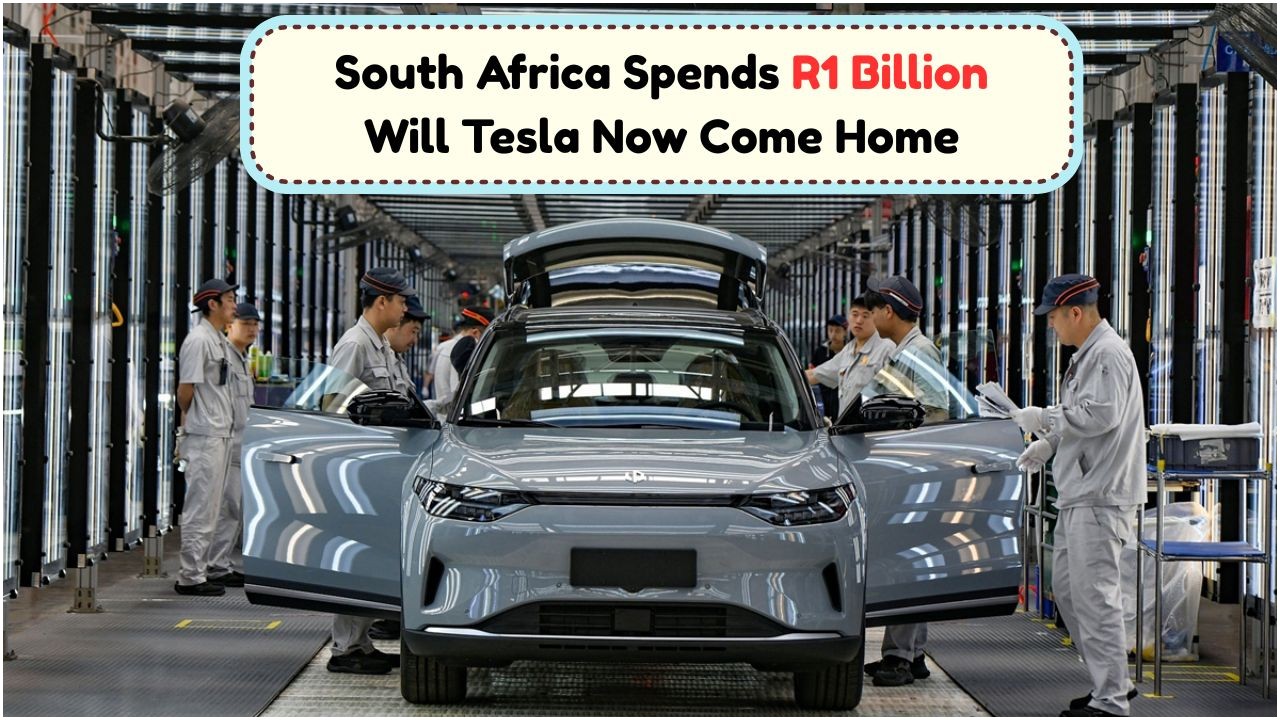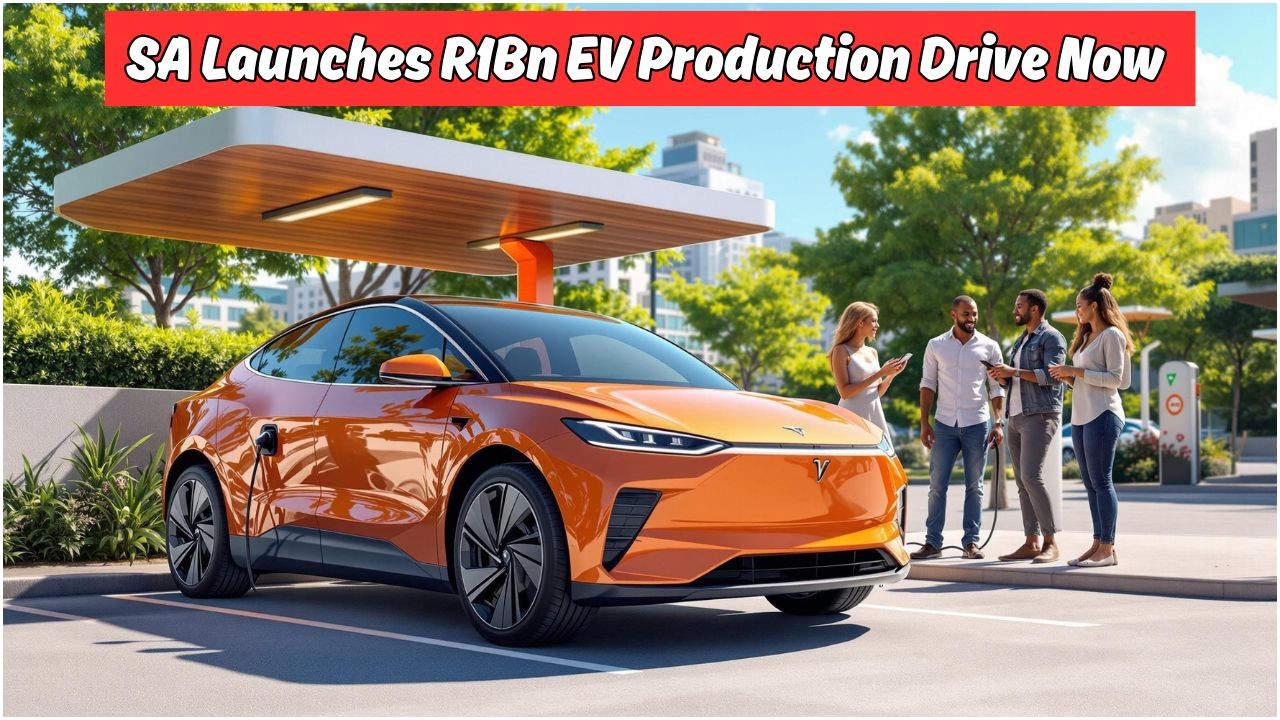This October: Government’s R1 Billion Investment in EV Battery Plants: This October marks a significant milestone for South Africa as the government announces a bold R1 billion investment in electric vehicle (EV) battery plants. This strategic move aims to tackle the country’s ongoing energy crisis, a challenge that has plagued its economy for years. By focusing on renewable energy sources and sustainable solutions, South Africa is taking a pivotal step toward energy independence. This initiative is not only expected to boost the local economy but also to position South Africa as a leader in the green energy sector on the African continent. The investment in EV battery manufacturing will create jobs, reduce reliance on traditional energy sources, and support the global transition to electric vehicles. As the world moves towards a greener future, South Africa is seizing the opportunity to be at the forefront of this revolutionary change.
Understanding the Government’s R1 Billion Investment in EV Batteries
In a groundbreaking move this October, the South African government is allocating R1 billion towards the development of electric vehicle (EV) battery plants. This investment is part of a broader strategy aimed at addressing the country’s persistent energy challenges. The focus on EV batteries is crucial as it supports the shift from fossil fuels to renewable energy, a transition that is vital for reducing carbon emissions and promoting sustainability. This initiative is also expected to stimulate economic growth by creating new jobs and attracting international partnerships.
- The investment will help reduce South Africa’s dependence on coal and imported oil.
- It will position the country as a key player in the global EV market.
- The initiative supports South Africa’s commitment to the Paris Agreement on climate change.
- It aligns with the government’s goals for sustainable development and green energy.
- The project is expected to foster innovation and technological advancements.
The Impact of South Africa’s EV Battery Investment on the Economy
The R1 billion investment in EV battery plants is set to have a transformative impact on South Africa’s economy. By focusing on renewable energy, the government is not only addressing energy shortages but also creating a new industry with the potential for significant economic benefits. The development of these plants will generate numerous job opportunities, from construction and manufacturing to research and development. Additionally, the initiative is likely to attract foreign investment, further boosting the economy.
| Sector | Impact | Growth Potential |
|---|---|---|
| Manufacturing | Increased production capacity | High |
| Employment | Job creation in various fields | Moderate |
| Foreign Investment | Attraction of global investors | High |
| Innovation | Advancements in technology | High |
| Energy Sector | Reduced reliance on fossil fuels | Moderate |
How EV Battery Plants Can Solve South Africa’s Energy Crisis
The establishment of EV battery plants in South Africa is a critical step towards resolving the country’s energy crisis. By focusing on renewable energy solutions, the government aims to reduce the nation’s reliance on traditional energy sources, such as coal, which have long been the backbone of South Africa’s energy sector. These plants will provide a sustainable alternative that aligns with global efforts to combat climate change and reduce carbon emissions.
- Transitioning to renewable energy will help stabilize the national grid.
- EV batteries offer a more sustainable and eco-friendly energy solution.
- The initiative supports the development of local infrastructure.
- It encourages the adoption of electric vehicles across the country.
- The project will reduce energy costs and improve efficiency.
Challenges and Opportunities in South Africa’s EV Battery Sector
While the investment in EV battery plants presents numerous opportunities, it also comes with its share of challenges. One of the primary hurdles is the need for skilled labor to support the growing industry. Additionally, there are concerns about the availability of raw materials required for battery production. However, these challenges also present opportunities for growth and innovation. By investing in education and training programs, South Africa can develop a skilled workforce that meets the demands of this burgeoning sector.
| Challenge | Opportunity | Solution |
|---|---|---|
| Skilled Labor | Develop training programs | Partner with educational institutions |
| Raw Materials | Explore local sourcing options | Invest in mining and extraction |
| Technological Advancements | Foster innovation | Encourage research and development |
| Infrastructure Development | Improve local facilities | Government and private partnerships |
| Market Competition | Establish competitive edge | Focus on quality and sustainability |
Benefits of EV Battery Plants for South Africa
The introduction of EV battery plants offers numerous benefits for South Africa. Firstly, it aligns with the country’s goals for sustainable development and environmental conservation. By reducing reliance on fossil fuels, South Africa can significantly lower its carbon footprint and contribute to global efforts to combat climate change. Additionally, the development of these plants will create jobs and stimulate economic growth, providing a much-needed boost to the local economy.
- Promotes sustainable energy solutions
- Reduces carbon emissions
- Creates new job opportunities
- Stimulates economic growth
- Supports technological innovation
The Future of Energy in South Africa with EV Batteries
The future of energy in South Africa looks promising with the introduction of EV battery plants. As the country moves towards renewable energy solutions, it is well-positioned to become a leader in the green energy sector. The government’s investment in EV batteries is a significant step towards achieving energy independence and sustainability. By embracing this technology, South Africa can reduce its reliance on traditional energy sources and create a more sustainable future for generations to come.
 South Africa's Bold R1B EV Investment: Paving the Way for a 100% Electric Vehicle Market by 2035
South Africa's Bold R1B EV Investment: Paving the Way for a 100% Electric Vehicle Market by 2035
- Potential to become a leader in renewable energy
- Reduction in energy costs
- Improved energy efficiency
- Support for electric vehicle adoption
- Contribution to global climate change efforts
FAQ Section
What is the purpose of the government’s R1 billion investment in EV battery plants?
The investment aims to address South Africa’s energy crisis by promoting renewable energy solutions and reducing reliance on fossil fuels.
How will the investment in EV batteries impact the South African economy?
The initiative is expected to create jobs, attract foreign investment, and stimulate economic growth through the development of a new industry.
What challenges does South Africa face in implementing EV battery plants?
Challenges include the need for skilled labor, availability of raw materials, and infrastructure development. However, these also present opportunities for growth and innovation.
How do EV battery plants contribute to solving the energy crisis?
By providing sustainable and eco-friendly energy solutions, EV battery plants help stabilize the national grid and reduce energy costs.
What are the long-term benefits of EV battery plants for South Africa?
The long-term benefits include reduced carbon emissions, job creation, economic growth, and positioning South Africa as a leader in the green energy sector.









